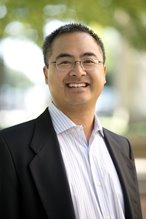June 2020
From the Director
MFP Spotlight: Shawna Murray-Browne
MFP Spotlight: Daniel McCrary
MFP Spotlight: Yajaira Hernandez Trejo
Join MFP’s Fellows and Alumni Town Hall!
Vote for Doctoral Alumnae to CSWE’s Board of Directors
Matters of Justice: Educator|Resource of the Month
Call for Papers: Journal of Poverty Special Issue
MFP Spotlight
|
Shawna Murray-Browne is a student in the doctoral program in social work at the University of Maryland, Baltimore. Mrs. Murray-Browne’s clinical and community-based practice focuses on mind–body modalities to reduce symptoms from race-based traumatic stress in African-American women, children, and activists. She consults with organizations on nourishing a culture of mindfulness, antiracism, and impact. After completing her doctoral degree, Mrs. Murray-Browne would like to develop curricula supported by data on anti-oppressive work in community and practice. |
|
Master’s fellow Daniel McCrary graduated with his MSW from the University of Georgia on May 8. Mr. McCrary works with racial/ethnic minorities experiencing trauma using psychotherapeutic modalities in a clinical setting. He provided marriage and family therapy at his internship at ASPIRE Clinic, a collaborative unit of the College of Family and Consumer Sciences at the University of Georgia. Mr. McCrary plans to enroll in a university based post-MSW clinical fellowship and work with individuals from all racial and ethnic backgrounds. |
|
Yajaira Hernandez Trejo graduated with her MSSW from Columbia University on May 20. Ms. Hernandez Trejo's research interest is the impact of violent crimes and incarceration on racial/ethnic minorities. At her internship at Crime Victims Treatment Center she provides survivors individual therapy and a emotion regulation skills group. Ms. Hernandez Trejo's career goal is to work in the Latinx community with survivors of violent crimes and interactions with the criminal legal system. Connect with Yajaira on LinkedIn.(Opens in a new window) |
Videos
K. Tajhi Claybren, Minority Fellowship Program alum, speaks with Duy Nguyen about working with LGBTQ populations, queer clinics, and more.
Marcus Leaks, Minority Fellowship Program (MFP) alum, chats with CSWE's Duy Nguyen about the importance of queer clinics. He also offers advice for social workers who need to maintain a socially competent practice pertaining to minority LGBTQ individuals.
MFP Fellowship
Join MFP’s Fellows and Alumni Town Hall!
Next week the MFP will be hosting a virtual town hall for our fellow and alumni community. We want to hear how you and your community are coping with and addressing the immense uncertainty and physical isolation resulting from the COVID-19 pandemic. Join us on Tuesday, June 16, 2020, 7:00 pm–8:30 pm EDT.
Zoom meeting link: bit.ly/3feFw1p(Opens in a new window)
Meeting ID: 912 0282 6509
Password: MFP62020
Vote for Doctoral Alumnae to CSWE’s Board of Directors
MFP is proud to announce that Dr. Joan Blakey (MFP Doctoral 2008), Dr. Makeba Green (MFP Doctoral 2003), and Dr. Kesslyn Brade Stennis (MFP Doctoral 2008) are candidates for the CSWE Board of Directors and National Nominating Committee. CSWE members can cast their votes before Monday, June 29, 2020. Click here to view their candidate statements.
Resources
Matters of Justice: Educator|Resource of the Month
Visit CSWE’s Center for Diversity and Social & Economic Justice to view the semiannual recap of the Educator|Resource. (Opens in a new window)Social work educators offer ways that social work can create more affirming classrooms, more equitable education, more culturally responsive practice, and more humane social institutions. Areas of focus include marginalization of sexual orientations and gender identities (with a focus on microaggressions and homelessness), racial and ethnic inequities in educational success, poor intervention outcomes among multicultural communities due to interventions that have not been culturally adapted, and solitary confinement of U.S. prisoners.
Explore teaching resources that inform social justice practice across the micro, mezzo, and macro levels
- Interpersonal level: guidance for addressing behaviors that undermine a person’s value based on their marginalized social identities
- Organizational and community level: needs assessment tools, equity-minded competence, and research-based culturally adapted interventions
- Systems level: strategies for advocacy, legislative practice, and policy reform
Call for Papers: Journal of Poverty Special Issue
The Fall 2021 special double issue of the Journal of Poverty will focus on documenting the 21st century consequences of the coloniality of power as it relates to the environmental destruction of afrodescendente and indigenous communities in the Americas. Journal submissions that discuss the forms of resistance by these communities will also be welcomed. Click here to learn more about submission guidelines.


 Shawna Murray-Browne
Shawna Murray-Browne